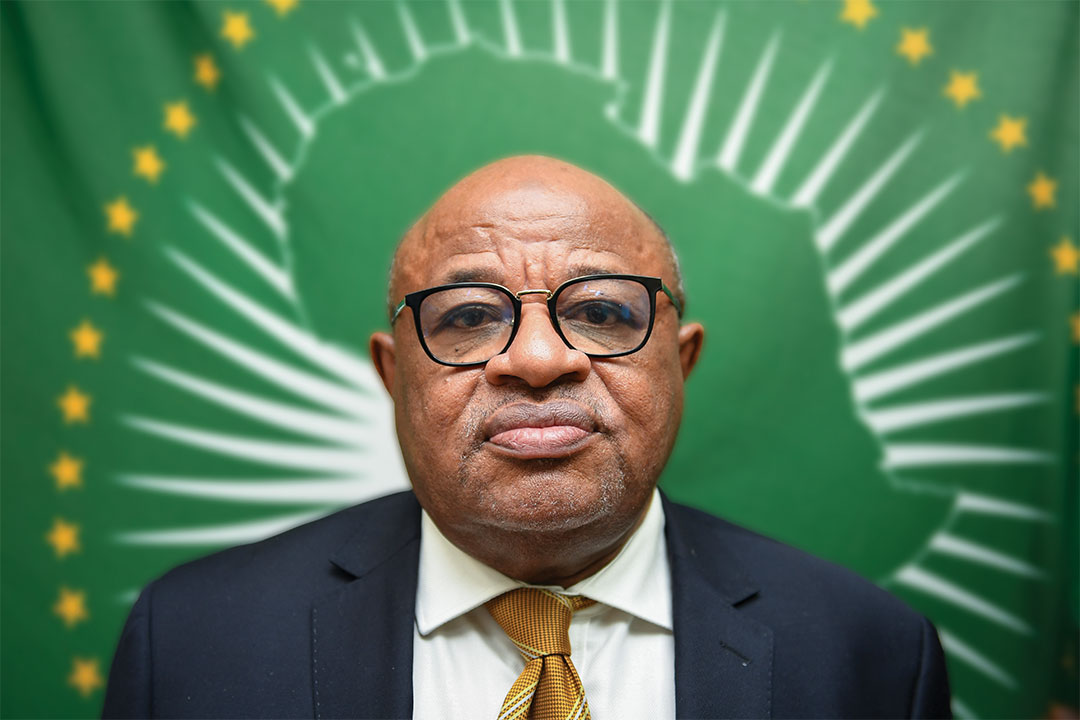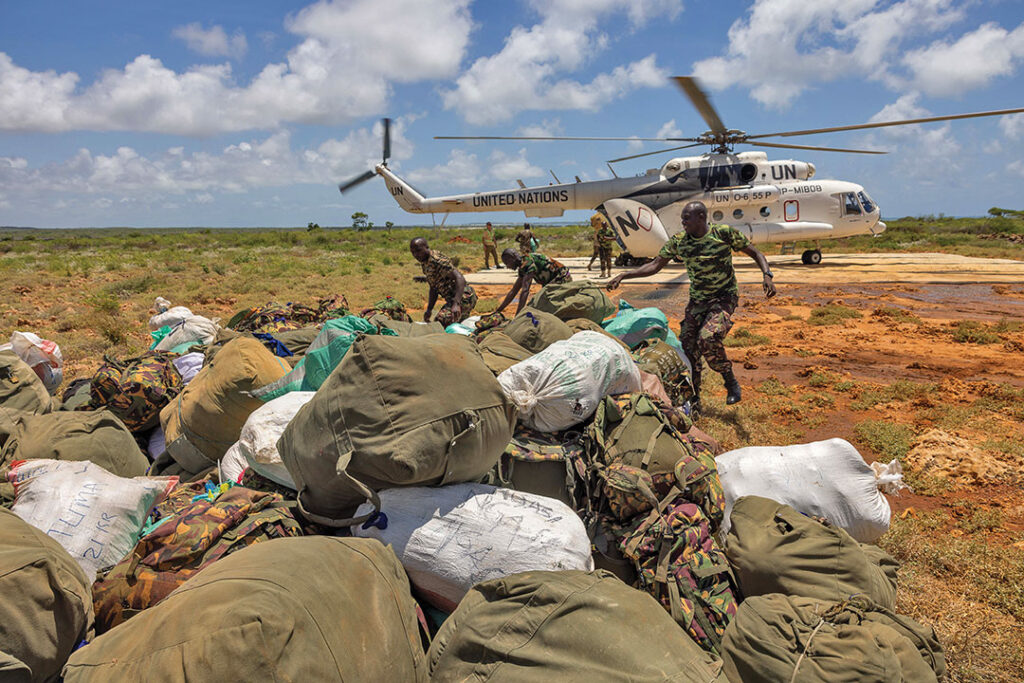 Ambassador Mohamed El-Amine Souef of Comoros, special representative of the African Union Commission Chairperson for Somalia and head of the AU Transition Mission in Somalia, addressed the United Nations Security Council in New York on October 3, 2024. His remarks have been edited for space and clarity.
Ambassador Mohamed El-Amine Souef of Comoros, special representative of the African Union Commission Chairperson for Somalia and head of the AU Transition Mission in Somalia, addressed the United Nations Security Council in New York on October 3, 2024. His remarks have been edited for space and clarity.
The recent months have witnessed a fluid security landscape in Somalia, characterized by progress and setbacks. The Somali Security Forces (SSF) intensified efforts to degrade al-Shabaab capabilities through improved targeted counterterrorism operations that led to the elimination of insurgent leaders and dismantling of several operational bases.
Nonetheless, al-Shabaab has continued to deploy asymmetric tactics, including complex attacks, improvised explosive devices (IEDs), vehicle-borne IEDs and indirect fire. The recent mortar attacks on African Union/United Nations camps in Baidoa, Mogadishu and Kismayo, and other forms of attacks against civilian and military targets in Mogadishu and across the AU Transition Mission in Somalia (ATMIS) sectors, demonstrate al-Shabaab’s resilience and underscore the need for robust intelligence-sharing mechanisms.
Moreover, reports of al-Shabaab acquiring missiles and armed UAVs are a further source of concern, increasing drone threats and hostility to federal government of Somalia installations, ATMIS, U.N., and SSF locations and civilian targets.
Similarly, the growing risk of infiltration and collaboration between al-Shabaab and the Houthis is a considerable security challenge, threatening regional stability in the Horn of Africa as well as maritime navigation and shipping routes in the Red Sea, the Indian Ocean and the Mozambique Channel. These concerns underscore the transnational nature of security challenges and the need for comprehensive and coordinated international efforts that prioritize effective and sustainable solutions.
As the government of Somalia advances the implementation of its Security Sector Development Plan to enhance force capabilities, sustained international cooperation and support is crucial to reinforce existing security frameworks, enabling Somalia to effectively address emerging threats.
I am pleased to report remarkable progress in the transition of security responsibilities from ATMIS to the SSF.
In line with this council’s decision on the phased approach to the Phase 3 drawdown, ATMIS, with the collaboration and support of the U.N. Support Office in Somalia (UNSOS), completed the transfer of six of the eight forward operating bases (FOBs) designated for handover to the SSF.
With the challenging environmental and infrastructural terrain in some of our areas of operation, we continue to work closely with UNSOS to explore possible solutions, and we are making notable progress, hoping that the last two FOBs will draw down by the end of October 2024.
Transition planning is a complex process integrally tied to the dynamics of national leadership and ownership. In this regard, I commend the federal government of Somalia, under the stewardship of President Hassan Sheikh Mohamud, for assuming full ownership and responsibility for the planning process by promoting enhanced collaboration and coordination among key stakeholders.
I would like to underscore that despite challenges, there are clear opportunities to consolidate and further progress.
I remain deeply convinced that the determination of President Mohamud to build trust and consensus and foster a culture of shared commitment and responsibility with all stakeholders to address emerging issues will be essential to sustain the fight against al-Shabaab and offer the best possible condition for a smooth transition.

